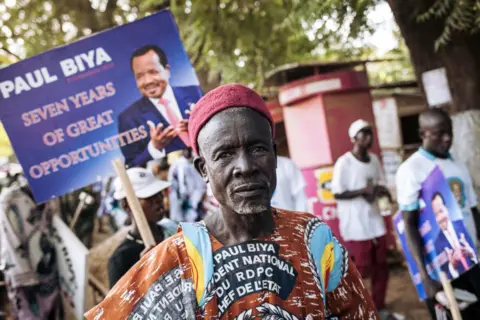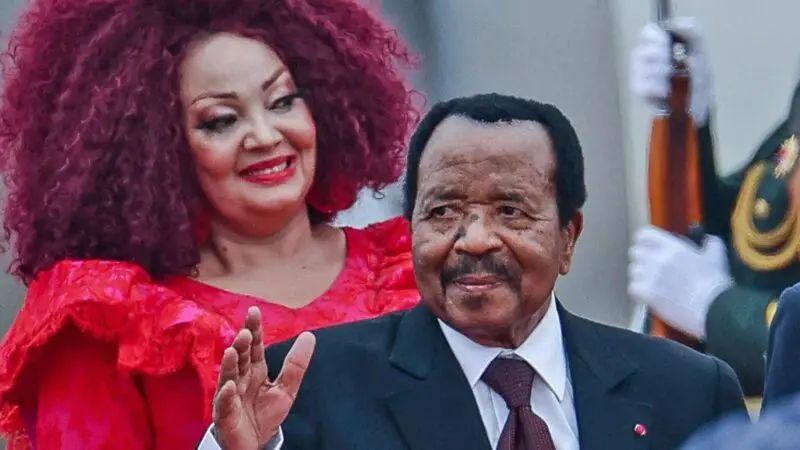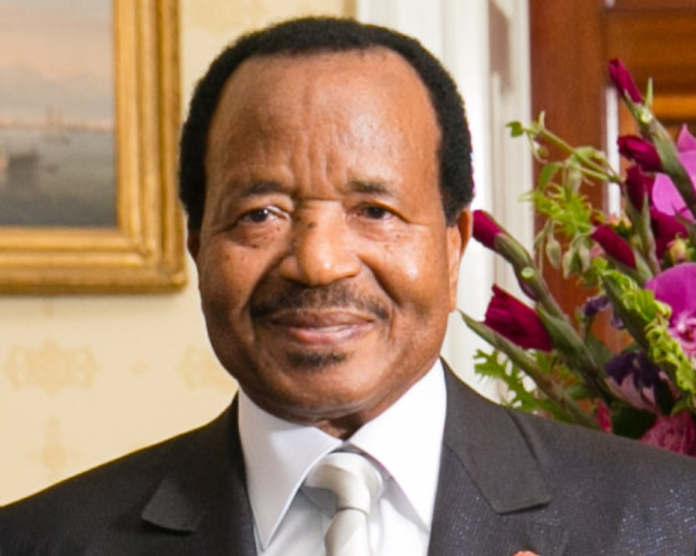Speculation over the well-being and whereabouts of Cameroon’s 91-year-old President Paul Biya has become a hot topic across Africa this week.
After attending the China-Africa summit in Beijing in early September, it was perhaps no surprise that he gave the UN General Assembly in New York a miss.
But when he stayed away from this week’s summit of French-speaking countries (La Francophonie) at Viller Cotterêts, north of Paris, the rumour mill went into overdrive, as he had not been seen in public for about a month.
Cameroon’s ambassador in France insisted that Biya is “in good health” and in Geneva – his habitual base when away from home.
Other sources suggested this was because he needed to rest under medical supervision after a heavy diplomatic schedule in July and August.
After all, he is Africa’s oldest head of state and the second longest-serving, narrowly beaten to that record by President Teodoro Obiang Nguema of neighbouring Equatorial Guinea.
Such mundane indications were not enough to still speculative guesswork about Biya in Africa-interested media and political circles.
So finally the government spokesman, René Sadi, issued a formal denial of the rumours, adding that the president would return home “in the next few days”.
And the head of the president’s private office, with him in Geneva, insisted he was “in excellent health”.
Cameroon occupies a key strategic location, as the gateway to landlocked Chad and the Central African Republic (CAR).
Apart from struggling to fully suppress jihadist violence around Lake Chad, it also wrestles with a complex and often violent crisis in its English-speaking regions.
In leading the response to these challenges, Biya has brought an unusual personal style that often eschews the front of the stage, without any apparent personal need to engage in diplomatic presenteeism or performative summitry.
He is a habitual non-attendee at many gatherings of African leaders.

Even back home, with his measured speech and cautious tone, Biya has for many years spaced his personal interventions, largely delegating the day-to-day running of the government, and handling of technical dossiers, to a succession of prime ministers.
Unexplained absences from public view have been nothing out of the ordinary for this most enigmatic of presidents.
Rumours that he has died do surface from time to time, largely because of these unannounced disappearances from the scene.
But this low-key style belies the determination with which he contrived his arrival in power in 1982, elbowing aside his patron and predecessor Ahmadou Ahidjo, promising liberalising change before entrenching a hold on the presidency that no subsequent challenger or campaign of protest has managed to shift.
As a wave of multi-party democratising change swept across much of Africa at the beginning of the 1990s, Biya was one of several incumbent leaders to shrewdly adapt, allowing sufficient reform to take the heat out of mass protest while nevertheless firmly keeping control.
Since one narrow election victory back in 1992, he has shrugged off subsequent political challenges, helped perhaps by manipulation of the polls and certainly by the divisions among often tactically inept opponents.
Now, with Biya’s current seven-year term drawing to an end in November 2025, supporters have even been pressing the 91-year-old to stand again.
Critics feel that it is long past time for Cameroon’s national leadership to pass to a younger generation who could tackle national problems and explore opportunities for development and progress with more speed and dynamism.
In 2016 teachers and lawyers in the two mainly English-speaking regions, South-West and North-West, protested over the failure to properly resource English language rights and public services.
If Biya had responded more rapidly and with a more assertively generous and loudly touted reform package, perhaps he could have assuaged discontent early on – and thus averted the eventual slide into violent confrontation between the security forces and armed militants demanding outright secession.
Biya did later bring forward reforms – to meet the grievances of the English-speaking regions and, nationwide, to decentralise power to regional councils.
But sometimes citizens have faced long waits before the regime addresses their concerns – decentralised structures were not set up until many years after the original framework legislation had been passed.
Some Cameroonians are, however, comfortable with Biya’s restrained approach to leadership and his readiness to leave successive prime ministers to handle routine decisions.
They see his role as more symbolic and distant, akin almost to a constitutional monarch.
Certainly, this representational role is a dimension of the presidency with which he has seemed at ease.
On 15 August, for example, he was at Boulouris, on the Côte d’Azur in France, where he gave a detailed 12-minute address at the commemoration of the 1944 Allied landings to liberate southern France from the Nazis – an operation in which many troops from the French African territories took part.
And in fact, despite frequent absences from the Cameroonian capital Yaoundé – usually retreating either to his home village in the forested south or to his preferred international base, Geneva’s Intercontinental Hotel – Biya has continued to take the key sensitive political and strategic decisions.

The main gatekeeper to the heart of power at the Étoudi presidential palace is the Secretary General of the Presidency, Ferdinand Ngoh Ngoh.
A power system where Biya, as the head of state, keeps his cards so close to his chest inevitably generates gossip about his own intentions for the 2025 election and about potential successors.
But some of the senior regime figures most frequently tipped, such as Laurent Esso and René Sadi, are by now themselves far from youthful.
Support groups have also appeared to promote a passing of the torch to the president’s elder son Franck Biya, a businessman – although Franck himself has never shown any interest in politics or given any hint of such ambitions.
But in today’s Africa, where disenchantment with the political establishment runs deep, particularly among young urban populations, establishment attempts to secure the continuation of power can carry risks.
In neighbouring Gabon, President Ali Bongo was deposed by the army last year after the regime manipulated the 2023 election to deliver him a further seven-year term despite his fragile state of health.
And when Senegal’s President Macky Sall lined up his Prime Minister Amadou Ba as his successor, he was decisively rebuffed by the voters who opted instead for the young reformist opponent Bassirou Diomaye Faye.
Biya and his inner circle may feel confident of avoiding such scenarios. But that will require a shrewd reading of popular sentiment, especially among youth and the middle-class in big cities such as Yaoundé and Douala.

